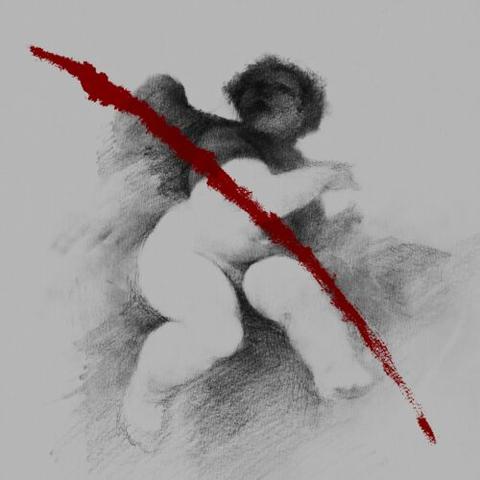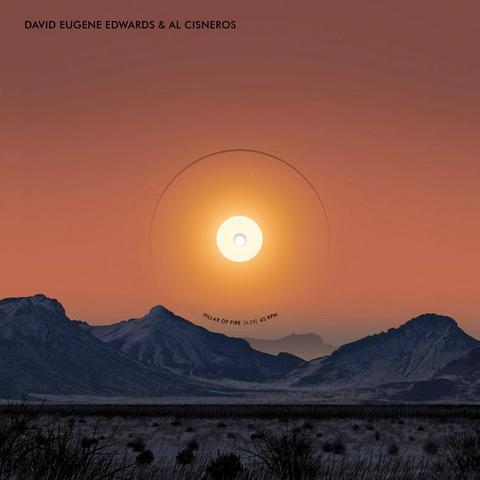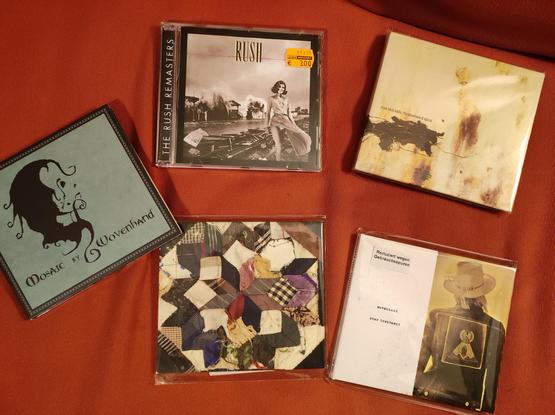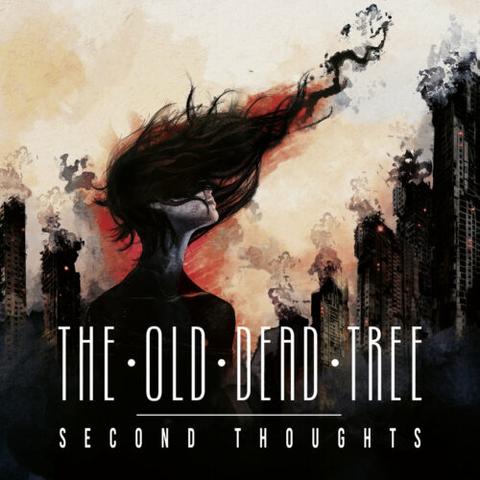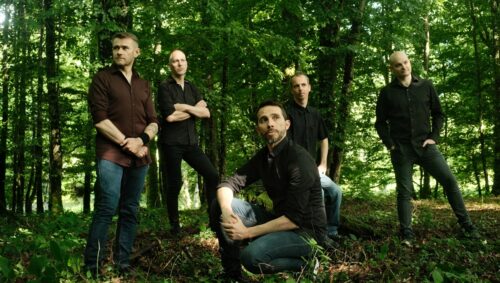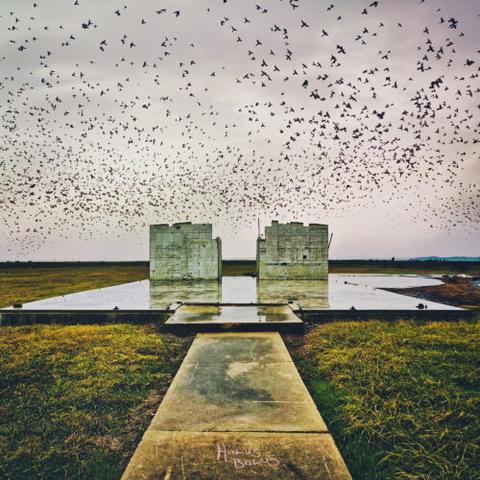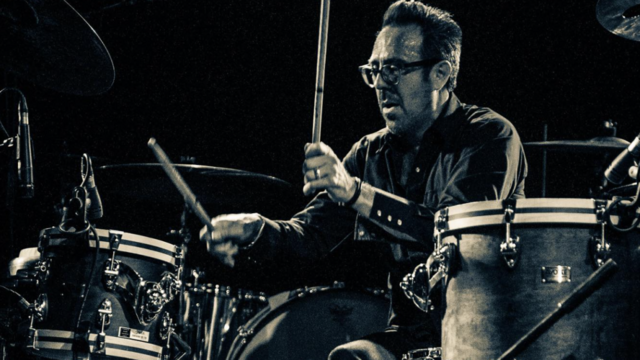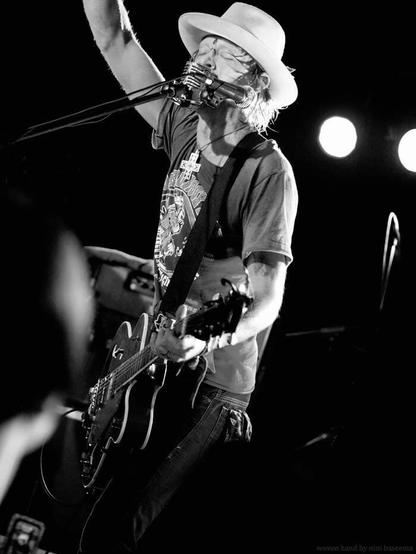The Infinity Ring – Ataraxia Review
By Dolphin Whisperer
The heart of heavy metal music lives in attitude, one of extreme emotions—sadness, anger, exuberance, catharsis. And in increasing trend, modern practitioners often conjure that spirit through atmosphere, which allows metal-adjacent spaces like goth rock and darkwave to strike a chord with those who typically fall for weepy music of crying guitars and mournful vocals. New England-based The Infinity Ring harbors some of these dark sounds that attract lovers of the downtrodden—twangy and folky guitar refrains, post-rock-like swells in intensity and volume—all wrapped up in a smoky and gravel-filled vocal delivery. So even though Ataraxia isn’t metal,1 despite finding home in oft-metal label Profound Lore, its sorrowful swagger threatens to stimulate the same shout and simmer all the same.
With a gothic allure and a somber, neofolk-y expression, Ataraxia carves a path down weeping corridors with a stinging chamber folk ambience and swelling post-rock trajectory. Most importantly, though, The Infinity Ring’s narrative finds the comfort of low, crackling fire on a chilly night in the gravely mic antics of band leader and guitarist Cameron Moretti. His gruff croon and low distortion twang bring to mind the noir character of Nick Cave with the patience and weathered exhale of late Leonard Cohen works. And a sense of intimacy pervades his brooding incantations, with high gain recordings providing a crackle and tickle—a comfort similar to what some find in ASMR recordings. But though the timbre and dripping legato of Moretti’s poetry may wrap like a scratchy blanket on a cold night, its words often ring more harrowing and downcast.
Whether you fall prey to Moretti’s somber lull will still fall in line with whether the stripped and screaming chamber instrumentation provides an interesting enough base. From Ataraxia’s wistful introduction of violin swirling in post-crescendo denouement (“Obsidian”) to its close through the understated swell of fragile piano guidance and drowning string ambience (“The Archway”), the focus of hazy backings and hypnotic refrains drives the primary tether. It takes until the first drum rolls of “Elysium,” about ten minutes into the album, before a sense of classic swinging movement takes hold, and even the lilting rhythmic framework sways against a post-rock guitar gathering, distant clanging bells, and bowed crescendo. And while The Infinity Ring again finds this kind of tempo-pushing jog in “The Drum,” a majority of Ataraxia exists in a chamber-adjacent space that prizes the exploration of atmosphere and texture.
Yet, for an album that exists in this compositionally softer realm, Ataraxia plays less with intense dynamics and more with a focused loudness. As a vocal-forward affair, Moretti’s reverberating croons and scowls take center stage, their higher presence sitting above the fog of acoustic plonks and muted chamber underlays. Whether it’s against the plonky lead of piano (“Nightingale,” “The Archway”), across a Wovenhand-esque strum and kick and rim clack strut (“Hymn,” “The Drum”), or amidst a looping fuzz and minimalist progression (“Revenge,” “The Window”), bassy, breath-heavy murmurings ripple and pulse and pull along these distant soundscapes. Silence as a setup, like an inhale, still finds a place in the quiet-to-calamitous post-rock aura that The Infinity Ring wears at base. But also, like breath, a natural rise and fall defines Ataraxia’s pace, its closing message of “The Archway” embodying that swift, tidal tempo.
As a journey of serene discomfort, Ataraxia walks softly bug neglects to carry that big, bombastic stick. The Infinity Ring, sticking to a diverse sonic palette to achieve its moody goals, functions as a hard-to-quantify collective of unique and thought-out sounds. Walking in a long line of attitude-based artists like Lou Reed and Tom Waits, the path that The Infinity Ring has chosen is weird, entrancing, and, above all, rich with sonic delight. So with Ataraxia, the journey is the destination. And when the mood strikes, The Infinity Ring proves a hard act to ignore.
Rating: 3.5/5.0
DR: 7 | Format Reviewed: 320 kbps mp3
Label: Profound Lore Records | Bandcamp
Websites: theinfinityring.bandcamp.com | instagram.com/theinfinityring
Releases Worldwide: March 21st, 2025
#2025 #35 #Ataraxia #ChamberMusic #Darkwave #GothicRock #LeonardCohen #LouReed #Mar25 #NickCave #PostRock #ProfoundLoreRecords #Review #Reviews #TheInfinityRing #Wovenhand
